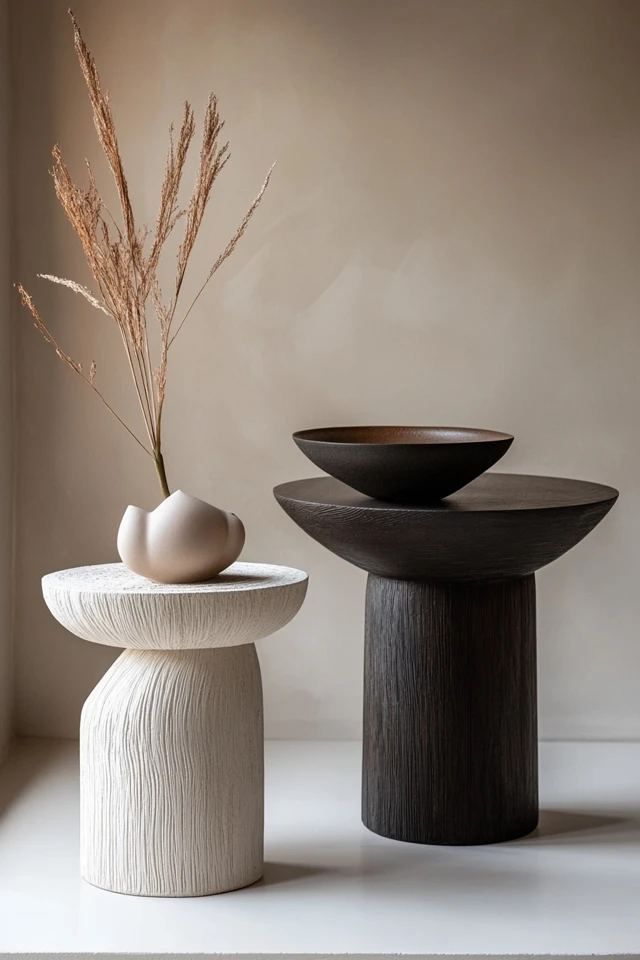Minimalist spaces thrive on intentionality. Every piece in a minimalist home serves a purpose, whether it’s functional, decorative, or both. Functional decor combines the best of both worlds: it’s aesthetically pleasing and serves a practical role in your space. By focusing on multifunctional pieces and thoughtful design, you can create a home that’s beautiful, uncluttered, and highly efficient.
When I started integrating functional decor into my minimalist home, I noticed a significant change. Pieces like a sculptural table lamp, a sleek magazine holder, and a woven storage basket not only added style but also served a purpose. My space felt cleaner, more cohesive, and far more practical for day-to-day living.
In this guide, I’ll share strategies for using functional decor in minimalist spaces to elevate both form and function.
Why Choose Functional Decor?
Benefits of Functional Decor
- Maximizes Space: Eliminates the need for purely decorative items, reducing clutter.
- Enhances Practicality: Adds utility to beautiful designs, ensuring everything has a purpose.
- Fits Minimalist Aesthetics: Clean lines and intentionality align perfectly with minimalist principles.
1. Choose Dual-Purpose Furniture
Furniture that serves multiple functions is a cornerstone of minimalist design.
Examples
- Ottomans with Storage: Perfect for hiding blankets, toys, or books.
- Sofa Beds: Add style while providing extra sleeping space for guests.
- Extendable Tables: Great for small spaces or multipurpose rooms.
Example:
A mid-century modern coffee table with built-in drawers adds style and discreet storage to your living room.
2. Incorporate Stylish Storage
Functional decor often includes stylish storage solutions that reduce visual clutter.
Ideas
- Woven baskets for blankets, magazines, or toys.
- Floating shelves for books, plants, or curated decor.
- Storage benches in entryways to hide shoes or bags.
Styling Tip:
Stick to natural materials like wood or rattan to add warmth and texture without compromising minimalism.
Picture Gallery
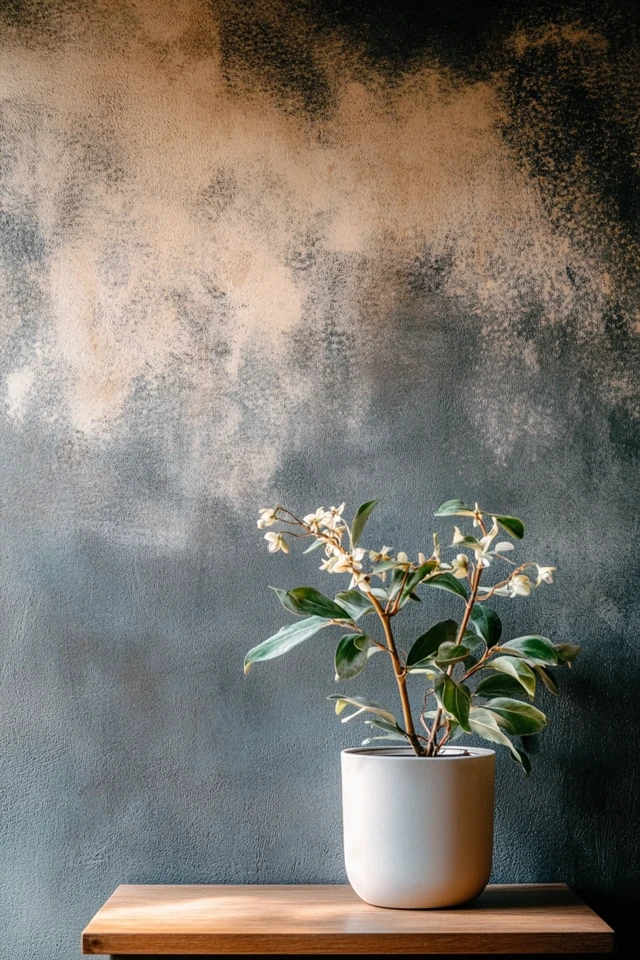
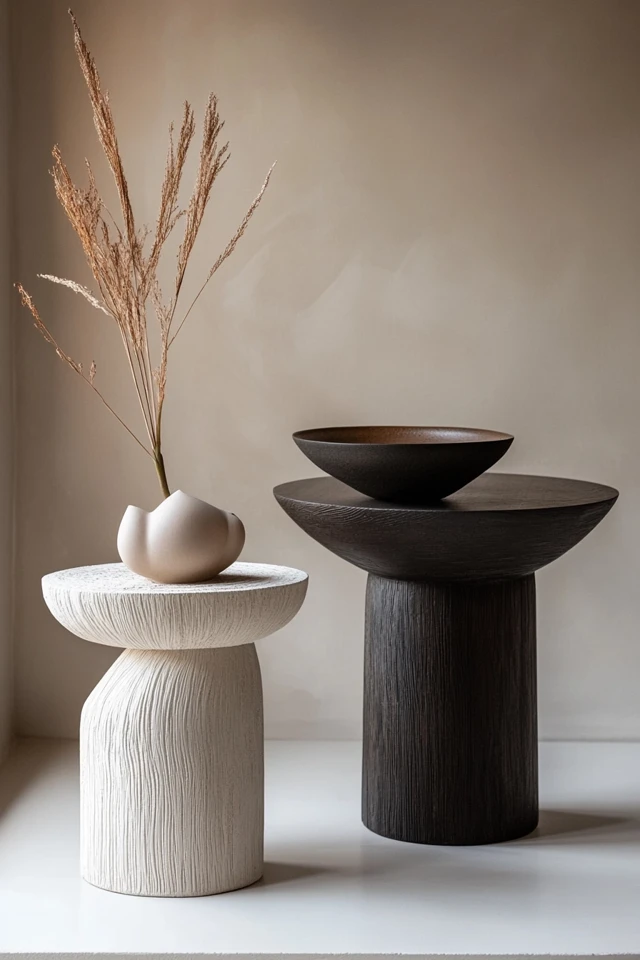

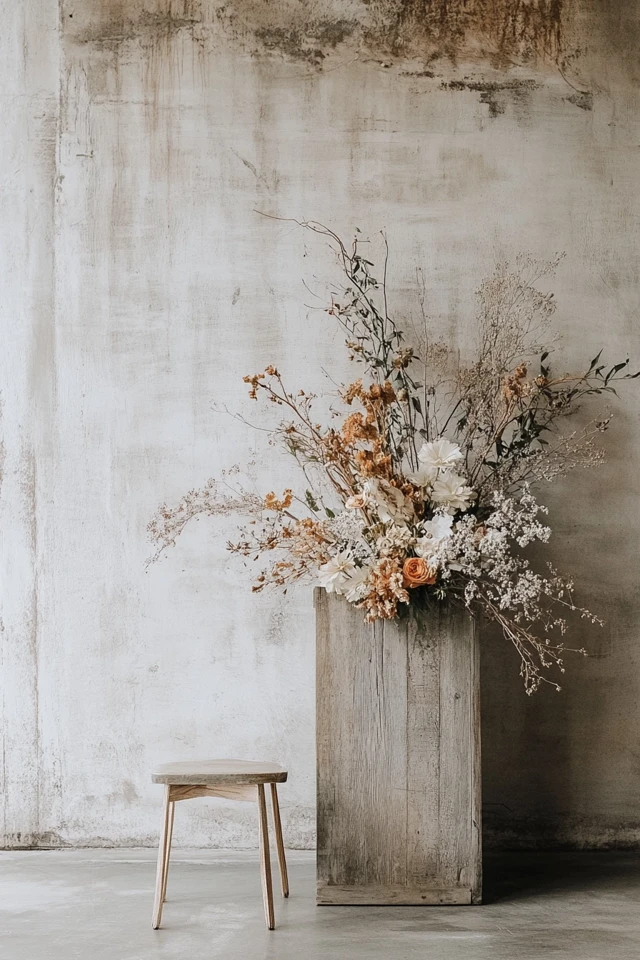
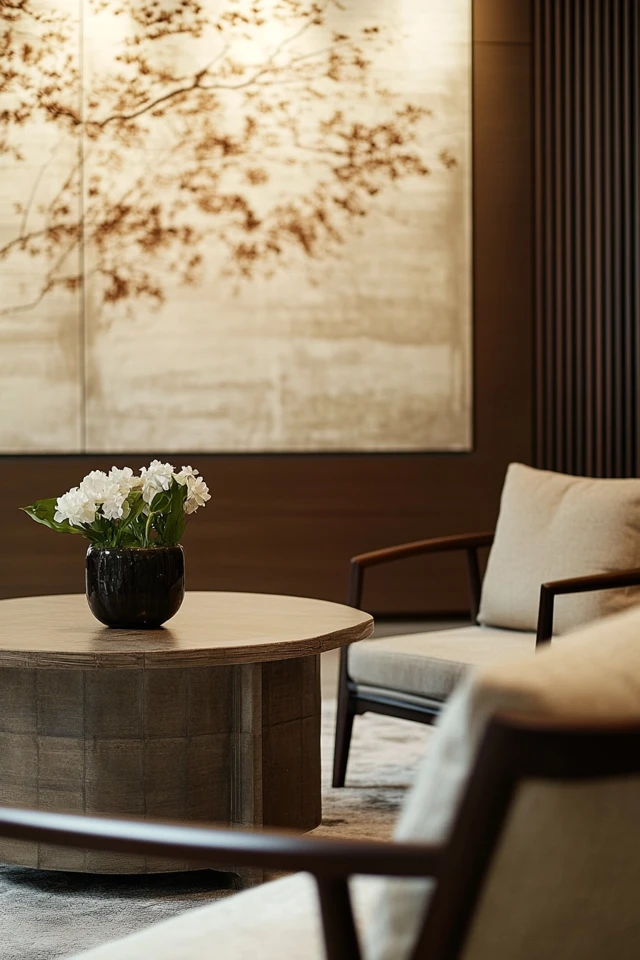

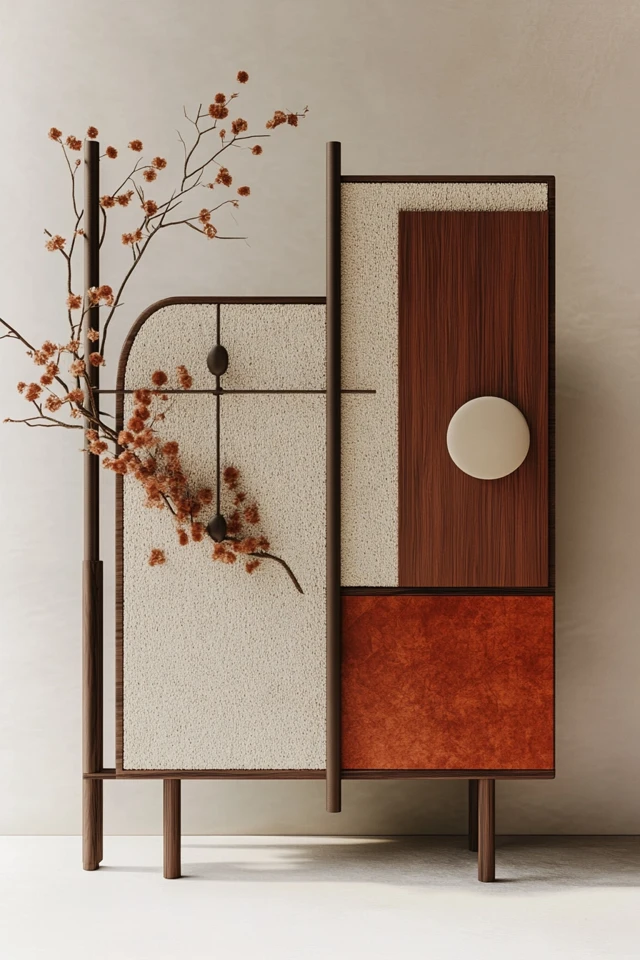
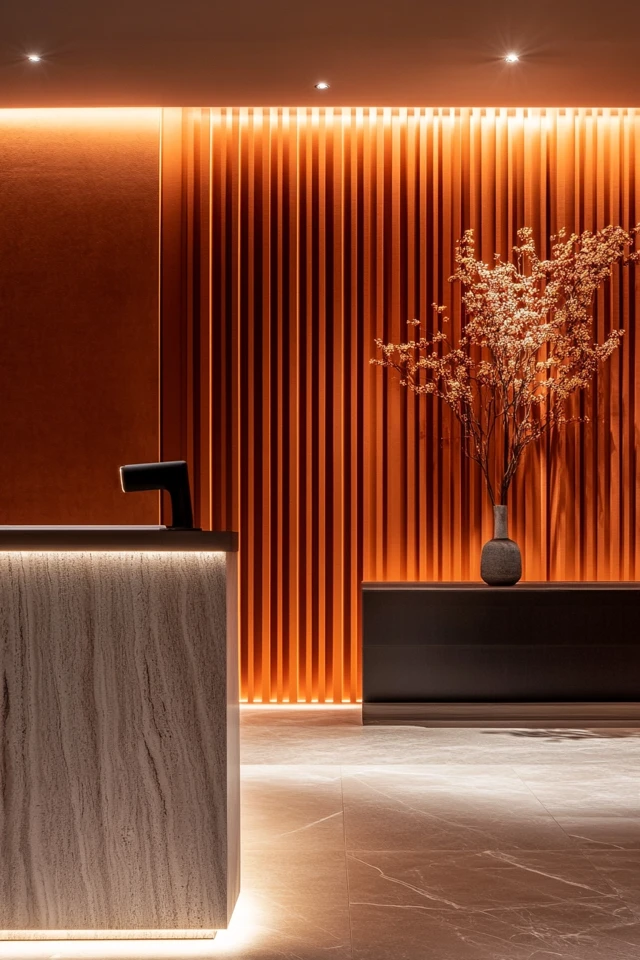
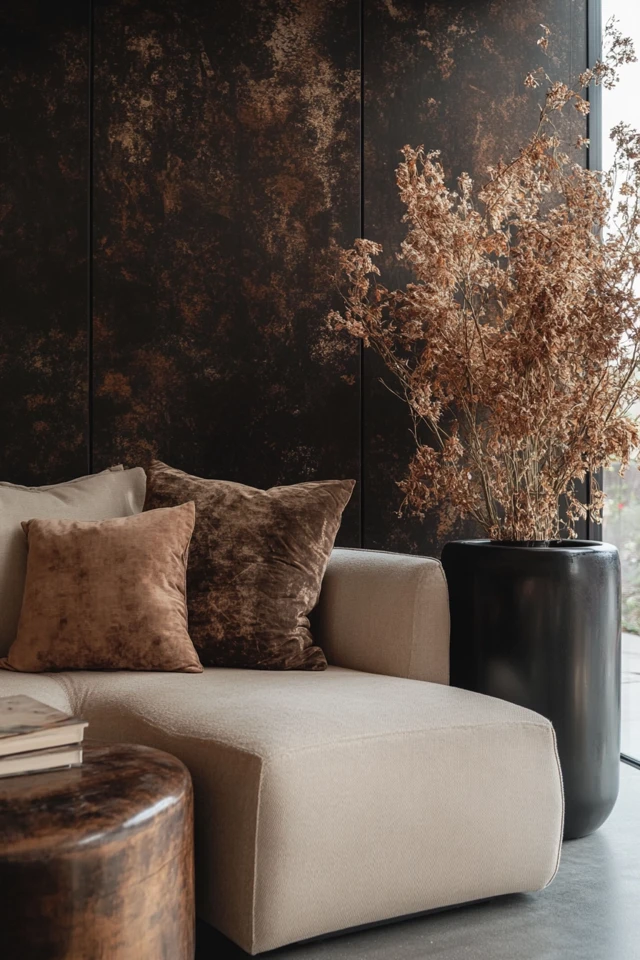
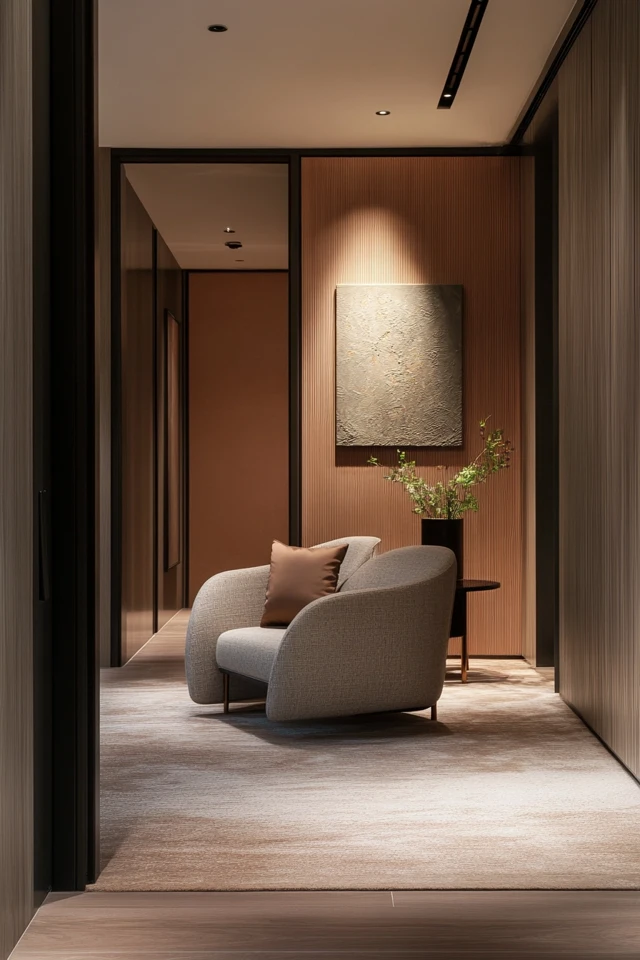
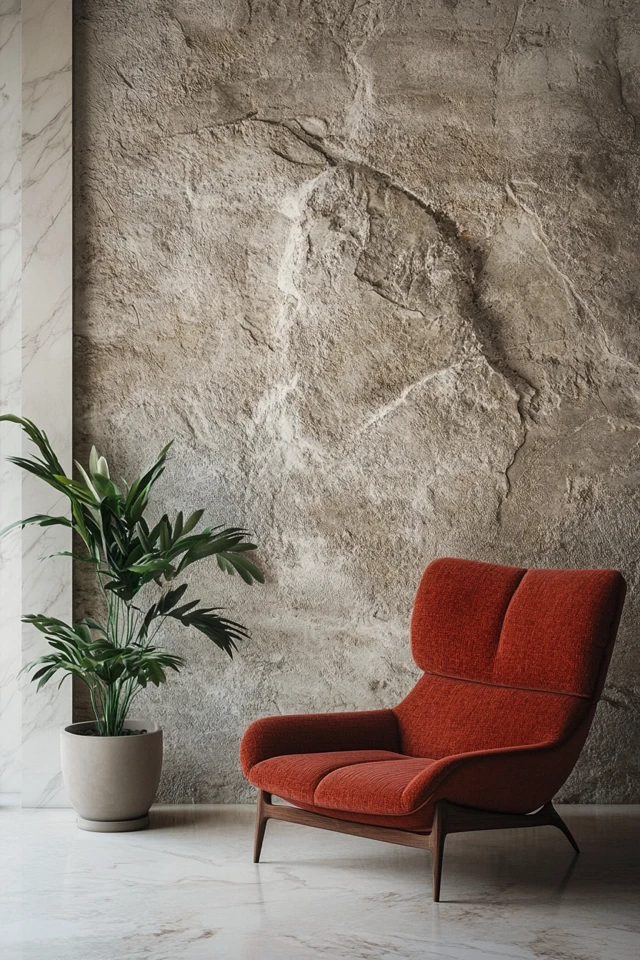
3. Use Sculptural Lighting
Lighting is a necessity, but in minimalist spaces, it can also double as art.
How to Choose Functional Lighting
- Opt for sleek floor lamps with sculptural shapes.
- Choose pendant lights with clean lines or organic curves.
- Use dimmable fixtures to control ambiance and mood.
Example:
A black arc floor lamp serves as both a lighting solution and a statement piece in a minimalist living room.
4. Display Functional Kitchenware
In minimalist kitchens, everyday items can become decor.
How to Style Kitchenware
- Use open shelves to display neatly arranged plates, bowls, and glasses.
- Store utensils in a ceramic vase or holder.
- Choose cutting boards made of natural wood or marble for display.
Styling Tip:
Keep everything in a cohesive color palette to maintain a clean, streamlined look.
5. Add Textured Storage Solutions
Storage pieces like baskets, bins, and boxes can enhance a room’s texture while serving a purpose.
Ideas
- Woven storage baskets for laundry or blankets.
- Fabric boxes for storing small items like remotes or chargers.
- Wooden crates for books or magazines.
Example:
A set of neutral-toned woven baskets under a console table provides hidden storage while adding warmth to the space.
6. Integrate Greenery
Plants are functional decor that improves air quality while adding life and texture to minimalist spaces.
How to Use Greenery
- Place small potted plants on shelves or side tables.
- Use large plants, like a fiddle-leaf fig, to fill empty corners.
- Opt for neutral-colored pots in materials like ceramic, terracotta, or metal.
Example:
A snake plant in a sleek white planter adds a touch of green to a minimalist bedroom.
7. Highlight Functional Art
Art can also serve a purpose in minimalist spaces.
Ideas
- A decorative clock with a modern, sleek design.
- A wall-mounted coat rack that doubles as decor.
- A magnetic knife strip in the kitchen that keeps tools organized and visible.
Example:
A minimalist wall clock in black and white serves as both a functional and decorative piece in a dining room.
8. Focus on Practical Textiles
Textiles like rugs, pillows, and curtains can provide comfort and style.
How to Use Textiles Functionally
- Add a plush area rug to define zones in an open floor plan.
- Use throw pillows in neutral tones to add softness and support.
- Choose blackout curtains for both privacy and aesthetic appeal.
Styling Tip:
Stick to high-quality fabrics like linen, cotton, or wool to enhance the minimalist aesthetic.
9. Opt for Functional Wall Hooks
Wall hooks can be both practical and visually appealing.
Ideas for Hooks
- Use wooden or metal hooks in entryways for bags, coats, or hats.
- Install hooks in the bathroom for towels or robes.
- Create a mini gallery by hanging decor or plants from wall hooks.
Example:
A set of matte black hooks on a white wall adds contrast and functionality to a minimalist hallway.
10. Use Mirrors Strategically
Mirrors are the ultimate functional decor—they reflect light and make spaces feel larger.
How to Use Mirrors
- Place a full-length mirror in a bedroom or hallway to create depth.
- Use round or rectangular mirrors with thin frames for a modern look.
- Hang mirrors opposite windows to maximize natural light.
Example:
A frameless oval mirror above a minimalist console table creates a striking yet understated focal point.
How to Balance Function and Style
- Prioritize Utility: Choose decor that serves a specific purpose in your daily life.
- Stick to a Palette: Keep colors neutral or cohesive to ensure functional pieces blend seamlessly into the space.
- Edit Regularly: Remove items that no longer serve a purpose to maintain the minimalist aesthetic.
- Invest in Quality: High-quality materials and designs often combine durability with timeless style.
Conclusion
Functional decor is the secret to creating minimalist spaces that are as practical as they are beautiful. By choosing pieces that serve multiple purposes, you can maintain a clean and uncluttered home while adding style and personality.
For me, functional decor has completely redefined how I approach design. From woven storage baskets to sculptural lighting, each piece in my home now feels both intentional and essential.
So, embrace the beauty of functionality, and let your minimalist space work for you. With these ideas, you’ll create a home that’s perfectly balanced and effortlessly stylish.
FAQ
What is functional decor?
Functional decor combines style and utility, serving a practical purpose while enhancing a room’s aesthetic.
Can functional decor work in small spaces?
Yes! Functional decor is especially beneficial in small spaces because it maximizes utility without adding clutter.
How do I choose functional decor for a minimalist space?
Focus on pieces that serve a purpose, such as storage, lighting, or seating, and keep the design clean and simple.
What materials work best for functional decor?
Natural materials like wood, metal, ceramic, and linen are ideal for creating minimalist functional decor.
Where can I find functional decor?
Look for functional decor at stores like IKEA, West Elm, or CB2, or shop local artisans for unique, multipurpose pieces.

